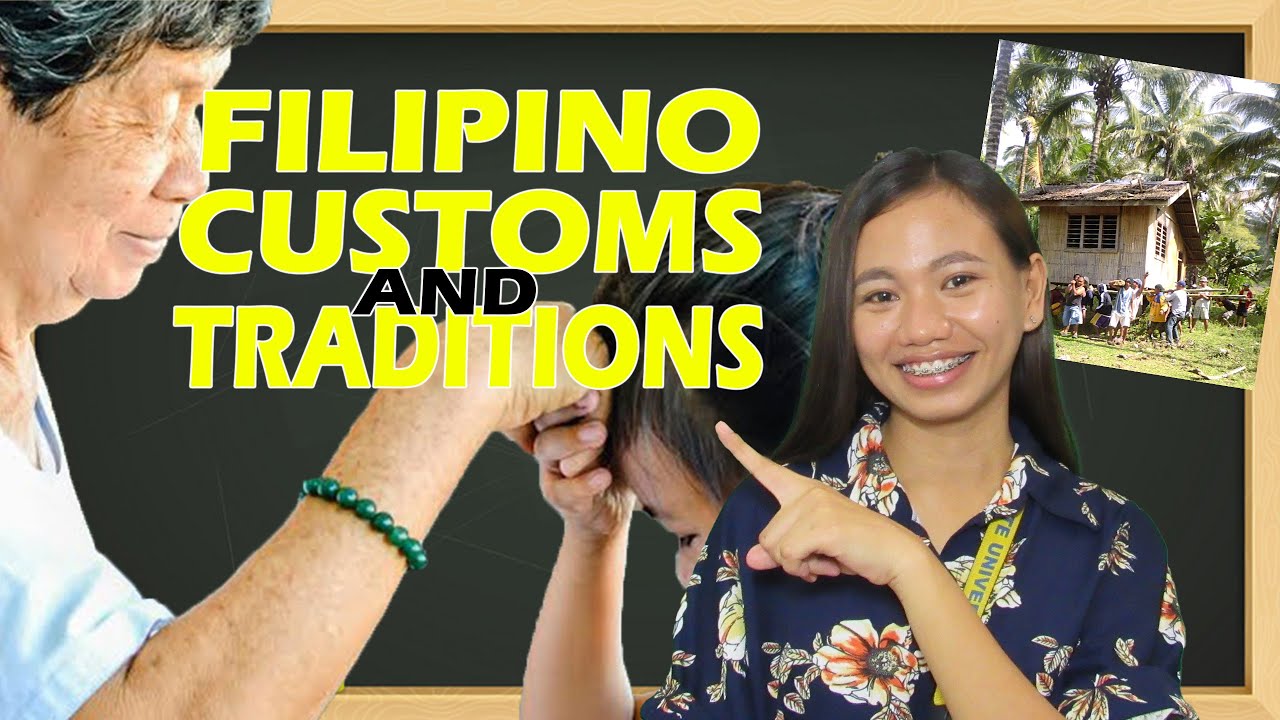HOW TO DO THE MANO PO (Filipino Gesture)
Summary
TLDRThe video script discusses a Filipino cultural practice known as the 'mano' or 'monopole,' a gesture of respect where younger individuals touch an elder's hand to their forehead to seek blessings. This tradition highlights the importance of respect in Filipino culture. However, the script advises caution as some individuals may not wish to be perceived as older. It emphasizes the significance of respecting elders when interacting with Filipino families, suggesting that understanding and participating in such customs can strengthen relationships.
Takeaways
- 🙏 The 'monopole' is a traditional Filipino gesture showing respect to elders.
- 👶 Younger individuals perform the monopole by placing an elder's hand on their forehead.
- 🏡 This gesture is commonly practiced when visiting a Filipino home.
- 🤔 The monopole is a request for blessings from the elder.
- 🤝 In contrast, Americans typically express affection with hugs or handshakes.
- 🧓 Respect is a significant aspect of Filipino culture, influencing many social interactions.
- 🚫 Be cautious with the monopole; some individuals may not want to be perceived as old.
- 👨👩👧👦 When dating a Filipino, it's important to show respect to their parents and elders.
- 🤗 Filipinos are known for being laid-back and friendly, but the culture highly values respect.
- 📚 The video serves as an educational insight into Filipino customs and the importance of cultural awareness.
Q & A
What is a 'monopole' in the context of Filipino culture?
-A 'monopole' refers to a gesture of respect in Filipino culture where younger individuals touch the hand of an elder and place it on their forehead, seeking their blessing.
How is the monopole performed?
-The monopole is performed by taking the hand of an elder and placing it on one's forehead for a moment or two as a sign of respect and to ask for a blessing.
What is the cultural significance of the monopole gesture?
-The monopole gesture signifies respect for elders and is a way of asking for their blessings, reflecting the importance of respect in Filipino culture.
Why might some older individuals not want to participate in the monopole?
-Some older individuals might not want to participate in the monopole because they do not wish to be perceived as old or may not be comfortable with the gesture.
What is the advice given for using the monopole when interacting with Filipinos?
-When using the monopole, one should be cautious and aware of the individual's comfort level, as not everyone may appreciate the gesture, especially if they do not want to be seen as old.
How does the monopole differ from common greetings in America?
-In America, common greetings include hugs and handshakes, whereas the monopole is a unique Filipino gesture that involves a more intimate and respectful interaction.
What is the narrator's opinion on the monopole and its place in Filipino culture?
-The narrator finds the monopole to be a cool and meaningful gesture that highlights the importance of respect in Filipino culture.
Why is it important to respect elders in Filipino culture according to the script?
-Respecting elders is important in Filipino culture as it is deeply ingrained in their values and traditions, and the monopole is one way of demonstrating this respect.
What should one do when meeting the family of a Filipino partner?
-When meeting the family of a Filipino partner, it is advised to perform the monopole with their parents and other family members who deserve respect, as it is a significant cultural practice.
How does the narrator describe Filipino people in general?
-The narrator describes Filipino people as laid-back and awesome, emphasizing that despite their relaxed nature, respect plays a significant role in their interactions.
Outlines

This section is available to paid users only. Please upgrade to access this part.
Upgrade NowMindmap

This section is available to paid users only. Please upgrade to access this part.
Upgrade NowKeywords

This section is available to paid users only. Please upgrade to access this part.
Upgrade NowHighlights

This section is available to paid users only. Please upgrade to access this part.
Upgrade NowTranscripts

This section is available to paid users only. Please upgrade to access this part.
Upgrade NowBrowse More Related Video

Tugas Video antropologi|menceritakan budaya, adat istiadat dan tradisi

인사(greeting) is more than just saying hello in Korean culture

Most Popular Filipino Customs and Traditions

PEUMULIA JAMEE - ADAT BUDAYA ACEH

Dongeng Sasakala Kalapagenep || Ghaitsa Haurani A. || X MIPA 3

Tradisi PEUSIJUEK Dalam Masyarakat Aceh | JEJAK ANAK NEGERI
5.0 / 5 (0 votes)